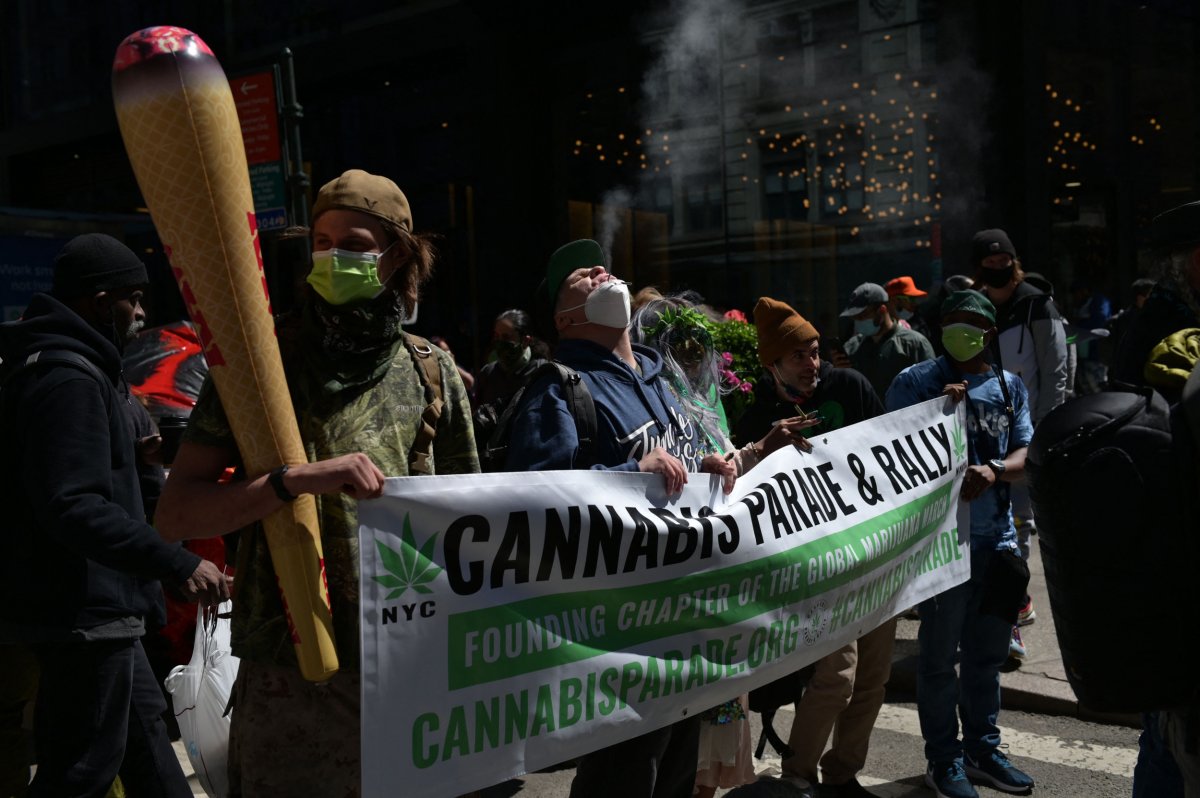President Joe Biden's federal pardon for those convicted of simple marijuana possession will most likely be met with obstacles as the federal government works to identify those who are eligible to have their records expunged.
Paul Armentano, deputy director of the National Organization for the Reform of Marijuana Laws (NORML), told Newsweek on Thursday that he predicts a "long slog" ahead while the federal government clarifies the eligibility for relief under Biden's new directive.
"I have never in all my years doing this seen a government or law enforcement agency that... archives how many individuals every year are prosecuted federally for marijuana related crimes," Armentano said, adding that he has worked in marijuana law reform advocacy for 27 years.
Officials announced ahead of Biden's announcement on Thursday that the full data of those eligible for pardon was not available, but that around 6,500 people had been convicted of simple possession between 1992 and 2021, according to The New York Times. Under the new directive, the pardon covers anyone convicted for marijuana possession since 1970, when the Comprehensive Drug Abuse Prevention and Control Act placed marijuana in the most restrictive category for drugs.
The estimate of 6,500 people also does not include the additional thousands of cases that have been convicted under District of Columbia drug laws who are also now eligible to be pardoned, reported the Times.

Biden has instructed Attorney General Merrick Garland to "develop an administrative process for the issuance of certificates of pardon to eligible individuals," according to a statement released by the White House.
Armentano said that as the directive stands, many questions remain to be answered.
"Are we going to notify them, or are we going to solicit them to notify us?" Armentano asked. "What are the specific parameters of who's eligible?
"Those details weren't in this directive," Armentano said. "And again, my guess is that the White House or the [Department of Justice] likely does not have a Rolodex, or some database that lists a whole bunch of names."
Armentano also argued that a federal pardon for marijuana charges is only a drop in the bucket for drug law reform, as NORML reported that roughly 29 million people have been arrested for marijuana-related charges since 1965.
"The overwhelming majority of people that are charged with marijuana possession, which is about 90 percent of all people charged with marijuana crimes in this country, are charged at the state or local level," Armentano said.
Because of this gap, NORML, along with several other advocacy groups for drug law reform, echo Biden's call for states to follow in the federal government's footsteps and pardon those convicted of possession at the state and local level. As of now, NORML reports that nearly two dozen states have enacted legislation that allows for certain marijuana-related offenses to be expunged from criminal records.
Armentano also argued for Congressional leadership to repeal the federal prohibition of marijuana, which would decriminalize the use and possession of marijuana federally and leave it up to the states to enact their own legislation on the issue. Currently, 19 states have legalized the recreational use of marijuana, and 39 states have legalized its medical use.
"All of those states are right now engaging in a state policy that is entirely inconsistent with the federal law," Armentano said. "That is an untenable long term situation, and at some point, the federal and state laws need to have some level of consistency."
The issue of legalizing marijuana has grown in popularity among American voters as well, according to a poll by Morning Consult/Politico published Wednesday that found three in five voters agree marijuana should be legalized.
The poll also found the consensus crosses party lines. While the majority of Democrat and Independent voters agree—at 71 percent and 61 percent, respectively—that marijuana should be legal, 47 percent of Republican respondents agree as well.
"These statements from the White House inspire Congress and lawmakers and Democratic and Republican leadership alike to come together and recognize that reforming marijuana policy repealing the federal prohibition of marijuana, it's not just good policy," Armentano said. "It's good politics."
Uncommon Knowledge
Newsweek is committed to challenging conventional wisdom and finding connections in the search for common ground.
Newsweek is committed to challenging conventional wisdom and finding connections in the search for common ground.
About the writer
Kaitlin Lewis is a Newsweek reporter on the Night Team based in Boston, Massachusetts. Her focus is reporting on national ... Read more
To read how Newsweek uses AI as a newsroom tool, Click here.








